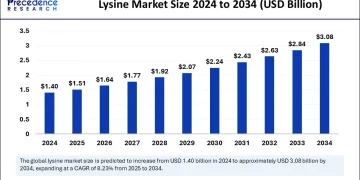Management accounting, also known as managerial accounting or cost accounting, is a crucial function within an organization that provides vital financial and operational information to managers and executives. Its primary goal is to facilitate informed business decisions, drive growth, and optimize resource allocation. In this article, we’ll delve into the world of management accounting, exploring its definition, roles, responsibilities, tools, and techniques, as well as its importance in driving business success.
What is Management Accounting?
Management accounting is a branch of accounting that focuses on providing financial and non-financial information to internal stakeholders, such as managers and executives, to help them make informed decisions about the organization. It encompasses a wide range of activities, including:
1. Financial Analysis
Analyzing financial data to identify trends, patterns, and anomalies, and providing insights to management.
2. Budgeting and Forecasting
Preparing budgets and forecasts to guide business decisions and ensure alignment with organizational objectives.
3. Cost Management
Identifying, measuring, and managing costs to optimize resource allocation and profitability.
4. Performance Evaluation
Developing and using performance metrics to assess business performance, identify areas for improvement, and drive accountability.
5. Strategic Planning
Providing financial and operational insights to support strategic planning, goal setting, and decision-making.
Roles and Responsibilities of a Management Accountant
Management accountants play a vital role in an organization, serving as a bridge between finance and operations. Their responsibilities include:
1. Financial Planning and Analysis
Preparing financial plans, reports, and analyses to support business decisions.
2. Cost Accounting
Developing and maintaining cost accounting systems to track and manage costs.
3. Budgeting and Forecasting
Preparing budgets and forecasts to guide business decisions and ensure alignment with organizational objectives.
4. Performance Management
Developing and using performance metrics to assess business performance and identify areas for improvement.
5. Strategic Support
Providing financial and operational insights to support strategic planning, goal setting, and decision-making.
Tools and Techniques of Management Accounting
Management accountants employ a range of tools and techniques to analyze data, identify trends, and inform business decisions. These include:
1. Financial Statements
Using financial statements, such as income statements and balance sheets, to analyze business performance.
2. Ratio Analysis
Calculating financial ratios to assess business performance, identify trends, and benchmark against industry averages.
3. Break-Even Analysis
Determining the point at which a business or project becomes profitable.
4. Cost-Volume-Profit (CVP) Analysis
Analyzing the relationships between costs, volume, and profit to inform business decisions.
5. Activity-Based Costing (ABC)
Assigning costs to specific activities or products to optimize resource allocation and profitability.
6. Lean Accounting
Eliminating waste and optimizing processes to reduce costs and improve efficiency.
7. Six Sigma
Using statistical tools and techniques to reduce defects and improve quality.
Importance of Management Accounting in Business
Management accounting plays a critical role in driving business success by:
1. Informing Business Decisions
Providing financial and operational insights to support informed business decisions.
2. Optimizing Resource Allocation
Helping to allocate resources efficiently and effectively to drive profitability.
3. Improving Performance
Identifying areas for improvement and developing strategies to drive business performance.
4. Enhancing Transparency and Accountability
Providing clear and accurate financial information to stakeholders, enhancing transparency and accountability.
5. Driving Growth and Innovation
Supporting strategic planning and goal setting, driving growth and innovation.
Challenges Facing Management Accountants
Management accountants face a range of challenges, including:
1. Data Quality and Integrity
Ensuring the accuracy, completeness, and relevance of financial and operational data.
2. Keeping Up with Changing Regulations
Staying current with changing regulatory requirements and industry standards.
3. Managing Complexity
Dealing with increasingly complex business environments and data sets.
4. Communicating Financial Information
Effectively communicating financial information to non-financial stakeholders.
5. Balancing Short-Term and Long-Term Focus
Balancing the need for short-term financial performance with long-term strategic planning.
Best Practices for Management Accounting
To excel in management accounting, consider the following best practices:
1. Stay Current with Industry Developments
Stay up-to-date with industry trends, regulations, and best practices.
2. Develop Strong Analytical Skills
Develop strong analytical skills to identify trends, patterns, and anomalies.
3. Communicate Effectively
Effectively communicate financial information to non-financial stakeholders.
4. Focus on Strategic Support
Provide financial and operational insights to support strategic planning, goal setting, and decision-making.
5. Emphasize Continuous Improvement
Continuously evaluate and improve management accounting processes and procedures.
Conclusion
Management accounting is a critical function within an organization, providing vital financial and operational information to inform business decisions. By understanding the roles, responsibilities, tools, and techniques of management accounting, organizations can optimize resource allocation, drive business performance, and achieve strategic objectives. Remember to stay current with industry developments, develop strong analytical skills, communicate effectively, focus on strategic support, and emphasize continuous improvement to excel in management accounting.
Frequently Asked Questions
What is the difference between management accounting and financial accounting?
Management accounting focuses on providing financial and operational information to internal stakeholders to inform business decisions, while financial accounting focuses on preparing financial statements for external stakeholders.
What are the main responsibilities of a management accountant?
Management accountants are responsible for financial planning and analysis, cost accounting, budgeting and forecasting, performance management, and strategic support.
What are some common tools and techniques used in management accounting?
Management accountants use financial statements, ratio analysis, break-even analysis, cost-volume-profit analysis, activity-based costing, lean accounting, and Six Sigma.
Why is management accounting important in business?
Management accounting informs business decisions, optimizes resource allocation, improves performance, enhances transparency and accountability, and drives growth and innovation.
What are some challenges facing management accountants?
Management accountants face challenges such as data quality and integrity, keeping up with changing regulations, managing complexity, communicating financial information, and balancing short-term and long-term focus.










